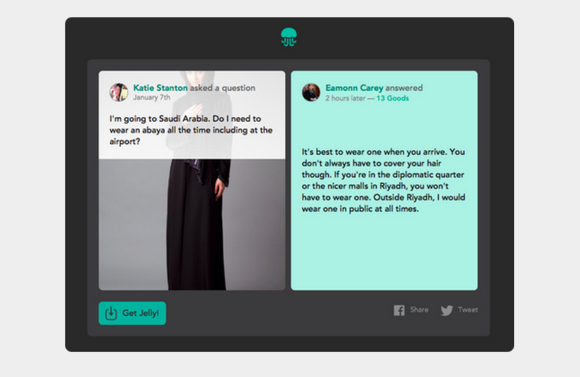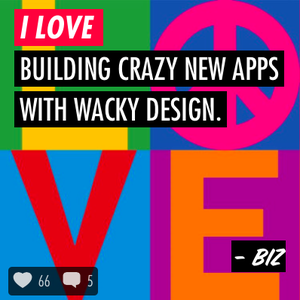AUSTIN — When Twitter cofounder Biz Stone first add up up with the idea forJelly , an app that lets users ask questions for other user to answer , everyone he huckster it to loved the idea . But alternatively of feeling reassured , Stone felt unsettled . It was as if they idea was acceptedtooeasily . ( After all , most investor did n’t reckon Twitter would catch fervor . )
Jelly was easy funded , especially because Stone was behind it . Even so , Stone was n’t exactly surprised when Jelly quickly fizzle out out after an volatile act of downloads at launch . And from there , he decide to pivot .
Switching gearing and not being afraid to fail were the recurring themes of Biz Stone ’s session at South by Southwest on Saturday , “ Biz Stone on Creativity and Redefining Success . ” On stage , he openly discussed the story of Jelly , admitting defeat without any pity — because it was that loser that lead to the birth of his new app , Super .

“ What I want is hundreds of one thousand thousand of well-chosen customer , because that ’s how you make an impingement , ” Stone tell during the session . “ I know Jelly was n’t that . ”
The idea for Jelly was born as kind of a novel - wave hunting engine : one that was mobile - first , and was filled with selective information that was n’t already available . It was a weapons platform where people could expect questions about things they could n’t find elsewhere online , and get an answer back from the Jelly community and their own societal connection . With Jelly , Stone require to create a weapons platform for hoi polloi to help each other .
“ wandering speech sound are the hyperlinks of man , and the genuine promise of a connect society is people help each other , ” Stone said .

Jelly was about helping each other , though most users just wanted to reply question , not ask them .
concord to Stone , Super is about empathy and emotionally connecting to each other .
Stone and Jelly cofounder Ben Finkel went back to the draught board and come up with Super , which Stone calls “ an evolution in social communicating , ” as users ’ interests pitch toward more expressive genre . Super is all about empathy : You carry something personal , follow the give prompts within the app ( “ The best … ” “ The enigma to … ” and “ Lady and cuss … ” are a few options ) and add a photo , then share . Your follower can only respond with a Super post of their own .
Visually , Stone deferred payment creative person Barbara Kruger as the inspiration . Super ’s look is reminiscent of Kruger ’s conceptual art , pop in the sixties : bluff text edition splashed over background figure , which can be pulled in from your Camera Roll , or found via an in - app Google image search .
Because Super is still so fresh — it just launched in February — Stone says he does n’t quite bonk how to decide whether it ’s successful or not . He considers Super and Jelly to have similar missions : Jelly is about helping hoi polloi , where Super is about feel empathy . Jelly is still in the store and still active — it still has a substance group of substance abuser , so they wo n’t shut it down altogether — but it has n’t been updated since December 2014 . ( “ Does anyone want it ? ” he joked . ) Basically , it ’s as good as dead : Stone pulled the whole team away from Jelly to cultivate on Super .
And if Super finally crashes and burns , Stone wo n’t be discouraged for too long . It ’ll just be on to the next project .
“ creative thinking is a renewable resource , ” he said . “ You never run out of it . ”